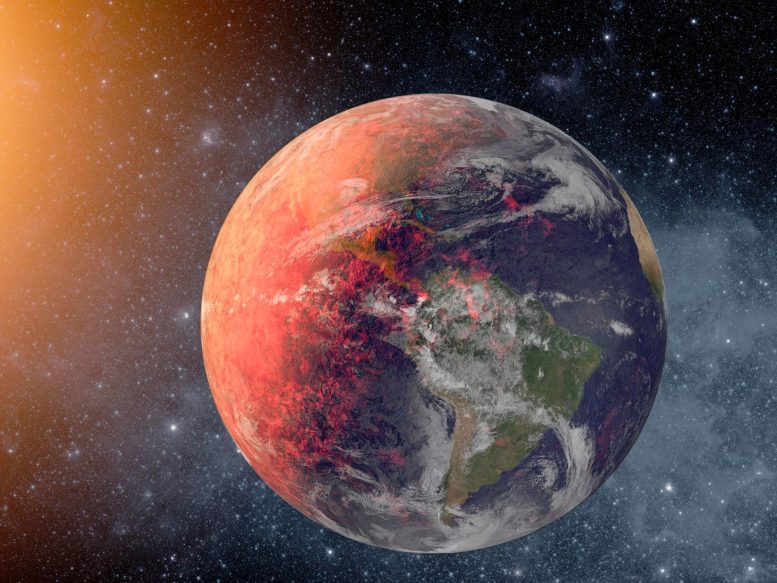
Scientists discovered that a melting ice sheet 8,000 years ago impacted global climate patterns. The study provides insights into potential future climate effects from Greenland’s melting ice.
Scientists analyzing geological samples from Scotland’s Ythan Estuary have pinpointed a melting ice sheet as the likely trigger of a major climate-change event just over 8,000 years ago.
The study, conducted by a collaborative team of geoscientists from four universities in Yorkshire under the leadership of Dr. Graham Rush — affiliated with both the University of Leeds and Leeds Beckett University, might offer insights into the potential impacts of current ice melt in Greenland on global climate patterns.
More than 8,000 years ago, the North Atlantic and Northern Europe experienced significant cooling because of changes to a major system of ocean currents known as the Atlantic Meridional Overturning Circulation, or AMOC.
The change in AMOC also affected global rainfall patterns.
It is believed that an influx of a massive amount of freshwater into the salt-water seas of the North Atlantic caused the AMOC to break down.
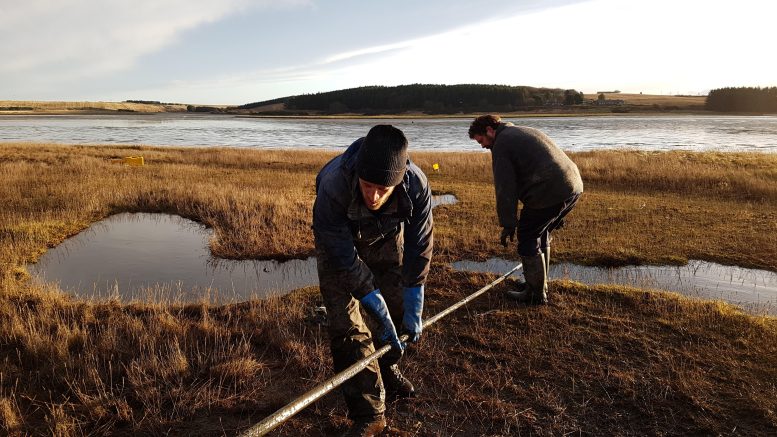
Shows the sediment core being taken from the Ythan Estuary. Credit: University of Leeds
The research team took core samples from the sediment in the Ythan Estuary to build up a picture of what was happening to sea levels 8,000-plus years ago.
From analyzing microfossils and the sediment in the samples, they found that sea-level changes departed from normal background fluctuations of around two millimeters a year and reached 13 millimeters a year with individual sea-level events resulting in water rising most likely by about 2 meters in the Ythan Estuary.
The analysis of the core samples provides further evidence that there were at least two major sources of freshwater that drained into the North Atlantic, causing the changes to the AMOC, and not a single source as previously thought.
The view held by many scientists was that the freshwater had come from a giant lake — Lake Agassiz-Ojibway, which was the size of the Black Sea and was situated near what is now northern Ontario -which had drained into the ocean.
Dr Rush said: “We have shown, that although huge, the lake was not large enough to account for all that water going into the ocean and causing the sea-level rise that we observed.”

Dr. Rush looking at the sediment core in the laboratory. Credit: University of Leeds
Instead, Dr Rush and his colleagues believe the melting of the Hudson Bay Ice Saddle which covered much of eastern Canada and the north-eastern United States provided the injection of vast quantities of water that was reflected in the core samples.
Ocean circulation distributes heat
Heat energy drives the world’s climate and the disruption to the ocean current had major ramifications around the world.
Temperatures in the North Atlantic and Europe dropped by between 1.5 and 5 degrees C and lasted for about 200 years, with other regions experiencing above-average warming. Levels of rainfall also increased in Europe, while other parts of the world, such as parts of Africa, experienced drier conditions and extended periods of drought. 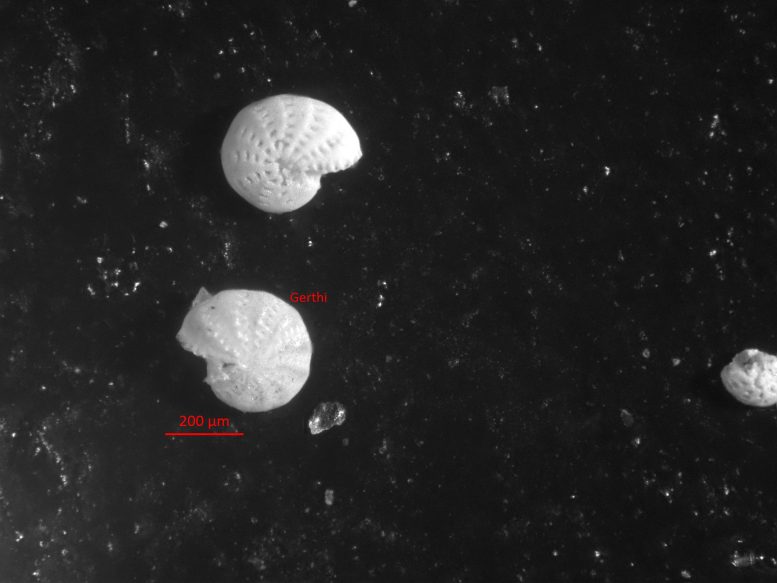
The authors of the study believe the study gives an insight into how the current-day melting of ice sheets in Greenland may affect global climate systems.
Dr Rush added: “We know that the AMOC is currently slowing down and, although still debated, some forecasts indicate it could shut down altogether.
“However, by looking at past events we can learn more about what causes these changes and their likelihood. We have shown that rapid ice-sheet retreat, which may occur in Greenland depending on the path of future fossil fuel emissions, can cause a range of significant climatic effects that would have very worrying consequences.”
Reference: “The magnitude and source of meltwater forcing of the 8.2 ka climate event constrained by relative sea-level data from eastern Scotland” by Graham Rush, Ed Garrett, Mark D. Bateman, Grant R. Bigg, Fiona D. Hibbert, David E. Smith and W. Roland Gehrels, 21 August 2023, Quaternary Science Advances.
DOI: 10.1016/j.qsa.2023.100119



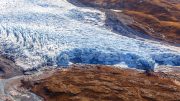
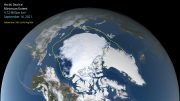
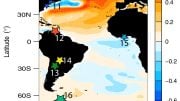
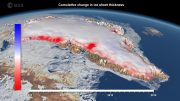
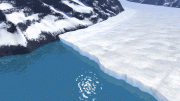
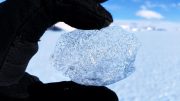
Who was putting out fossil fuel emissions 8000 years ago? Just goes to show that climate change has been happening since the earth was formed. The climate is going to do what it does, change. Man has got very little to do with it. Stop trying to scare us into submission.
Yes.. and the AMOC is like the ENSO. Entirely natural events. Unpredictable parts of Earth’s natural variability.
Indeed, it will happen as varying earth tilt and distance cycles around the sun will generate significant changes! Its these studies enabling us to quantify that enable a better understanding of whats to come!!
What caused the ice to melt?
The title seems to have things backwards? Shouldn’t it be: Climate change triggers melting ice. That’s not an ancient secret either.
We all know there were periods thru Earths” transitions to now having a look back can explain some of the mechanisms in play now we are noticing how our increase in population and the demands on its ecosystems change any natural progression we can either resign to the fact and keep using all our resources or form a better plan of advance, the melting poles dose not just add to the oceans levels melting creates vapper injection to the atmosphere changing weather patterns and placements of continental dyversity.
it is called evolution. The Earth has been constantly evolving and so have we people. but the Earth was here first and we really must stop abusing it and develop more respect for Nature.
People are not a part of Nature?
Está provado qua a Via Lacta gira. Será que a posição onde nos encontramos atualmente recebe alguma força gravitacional diferente, e estaria influenciando alterações no clima do Planeta?
Well isn’t that something. Climate change happened when mankind’s influence was minimal.